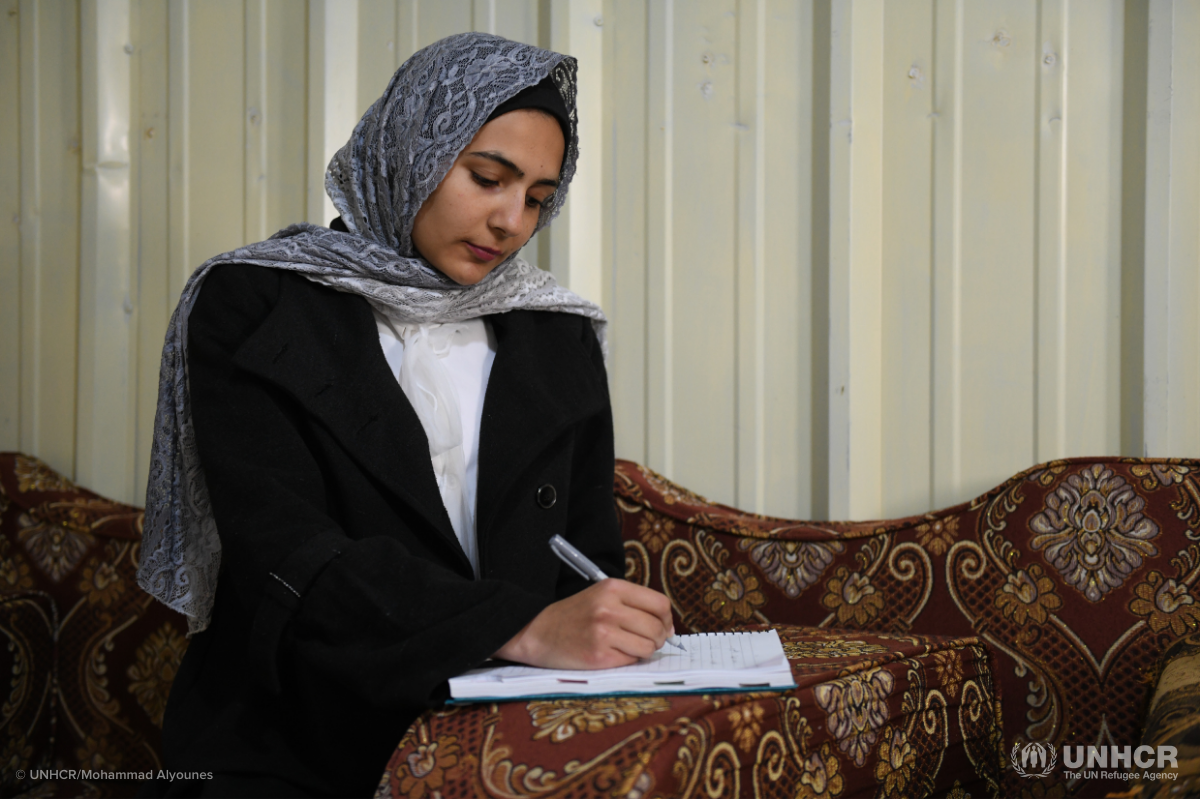What to know about refugee education and why it matters
When refugees flee, their lives are disrupted. Future plans are put on hold while searching for a safe place they can call home. For refugee children, the consequences of fleeing are especially difficult as their education is often disrupted and may continue to be affected due to mounting barriers. Without the necessary investment in quality education, even if classes are offered, refugee children’s education may languish in overcrowded, under-resourced classrooms.
Because of these obstacles, 51 percent of all school-aged refugee children globally are not enrolled in school. Despite the difficulties that refugees face in starting over, they have proven time and time again that an investment in their future can be transformative. Learn more about refugee children’s education and why investing in their future matters.
1. More than half of all refugee children are not enrolled in school
There are nearly 15 million school-aged refugee children globally, up from 10 million the previous year. More than half of these children are missing out on a formal education and the chance at a brighter future.
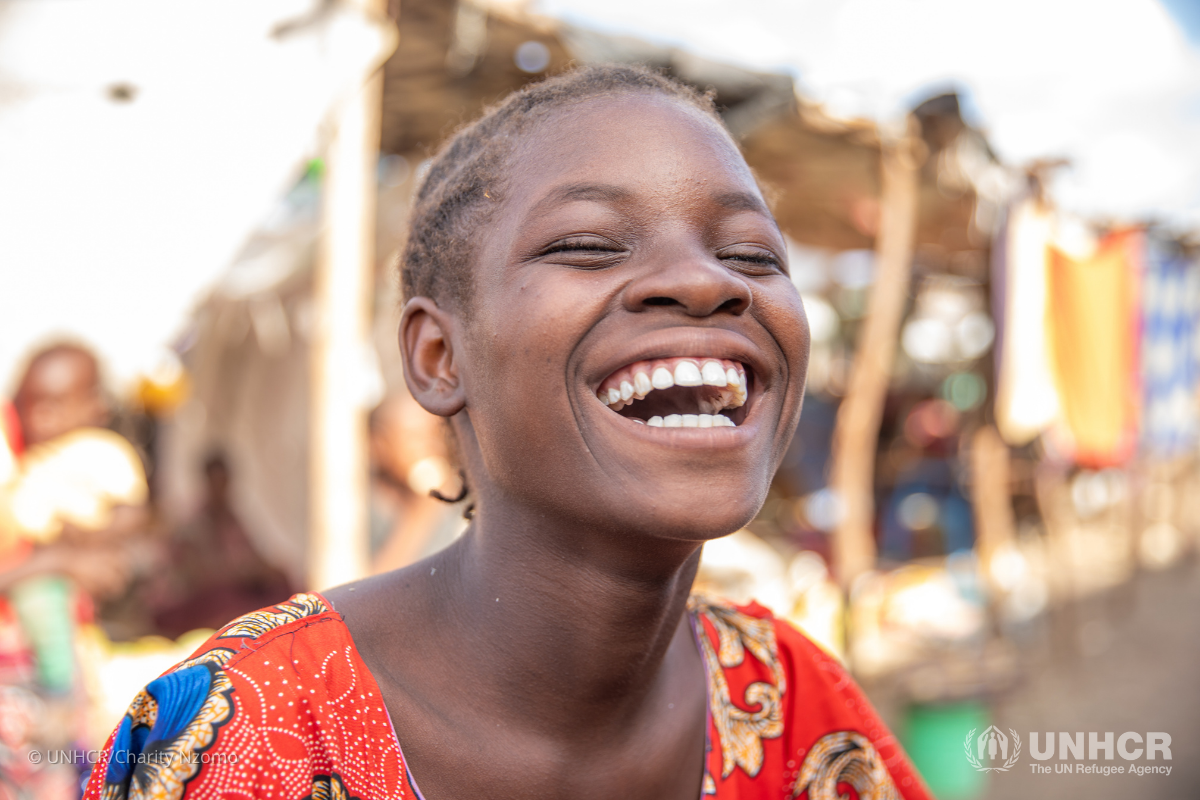
"I want to be a teacher when I grow up. I really love school and If I could, I would go to school every single day,” shares Kashindi Mmbeoumu. At 14, she already knows how powerful education is and how it can help shape her future.
Kashindi and her family are originally from the Democratic Republic of the Congo but were forced to flee their home and now live in the Kakuma refugee camp located in northwestern Kenya.
“Before joining school I knew nothing and now I can speak in English, understand mathematics and science which is my favorite subject,” Kashindi says. She hopes to be a teacher someday so she can help other refugees, just like her teachers at the camp have helped her.
Education gives children and young people the ability to explore their interests and discover their passions. For young refugees like Kashindi, education is the surest road to economic self-sufficiency and recovering a sense of purpose and dignity after being displaced.
2. Refugee girls need access to quality education
A major obstacle that prevents refugee girls from achieving an education is cost. The prohibitive cost of school fees, uniforms, books and other learning materials can be difficult for refugee families to cover without a stable source of income. In addition to material costs, refugee families may have to weigh the opportunity costs of having their daughter attend school rather than bringing in additional income, performing household chores and taking care of the family. Culturally, some communities are unwilling to invest in girls’ education as well, especially if child marriage or teen pregnancy are the norm.
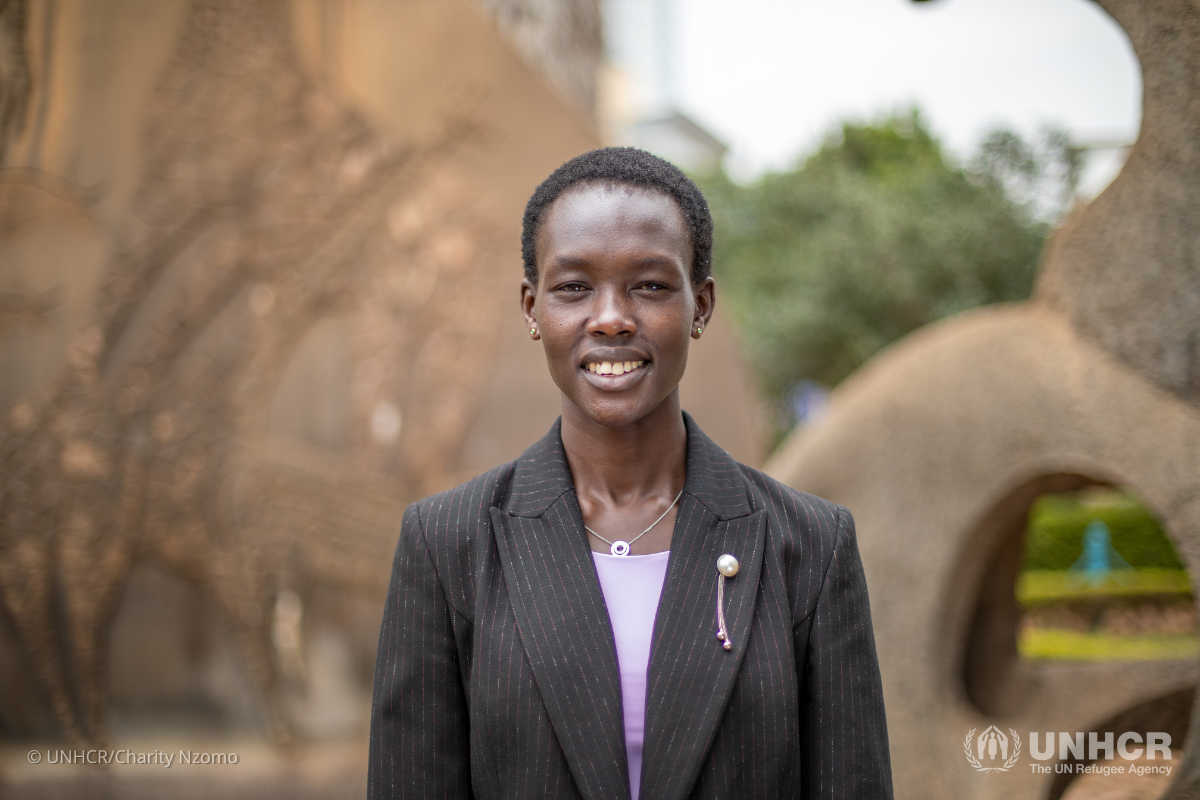
This was the case for Monicah Malitha, a 25-year-old third-year law student at the University of Nairobi, Kenya originally from South Sudan. “I was only 12 years old, but according to tradition I would soon be married and there were already four men waiting in line,” Monicah recalls. “Luckily for me, my aunt was going to Kenya to seek safety from the conflict, and my father let me go with her to help with household chores. At that time, education was not even a dream of mine.”
As a young refugee girl, Monicah had no idea what to expect after fleeing conflict in South Sudan and arriving at the Kakuma refugee camp. When she enrolled in primary school a year later, she was the oldest student in the class but couldn’t write her name or count to ten. By the end of her first year, she was at the top of her class. It was at this moment that Monicah realized she could seriously pursue education.
As Monicah's passion for education grew, so did the obstacles. “As the crisis in South Sudan worsened, financial constraints made it hard to continue paying school fees, while the social and cultural pressure to marry became unbearable as I grew through my teenage years—I would come home from school to find numerous men having visited my aunt seeking to marry me—but I wished to continue my education.”
Monicah is now pursuing a Bachelor’s Degree in Law at the University of Nairobi. She is pursuing law in the hopes of improving the justice system in South Sudan. She is also the first refugee President of the University of Nairobi Students Association and is using her influence to advocate for greater financial support for refugee students.
Over the past 20 years, great strides have been made in improving girls’ and women’s education. But each year, millions of women and girls among the world’s growing refugee population continue to go without an education, while the need for them to remain in school has only grown. According to UNESCO, if all girls completed primary school, child marriage would fall by 14 percent. If they all finished secondary school, it would plummet by 64 percent.
“My personal journey exemplifies the resilience and determination of refugee girls and shows that by empowering us through education we can break the cycle of hardship and provide a path towards a brighter future. If you seize every opportunity, no one and nothing can hinder you from achieving what you want.”
3. Refugees have a difficult time accessing higher education
In 2019, UNHCR and its partners set a goal to increase refugee enrollment in higher education to 15 percent by 2030. Since this commitment was made, the enrollment rate has slowly climbed from 1 percent in 2019 to 7 percent. Despite these improvements, there is still disparity in refugee and non-refugee students' enrollment rates.
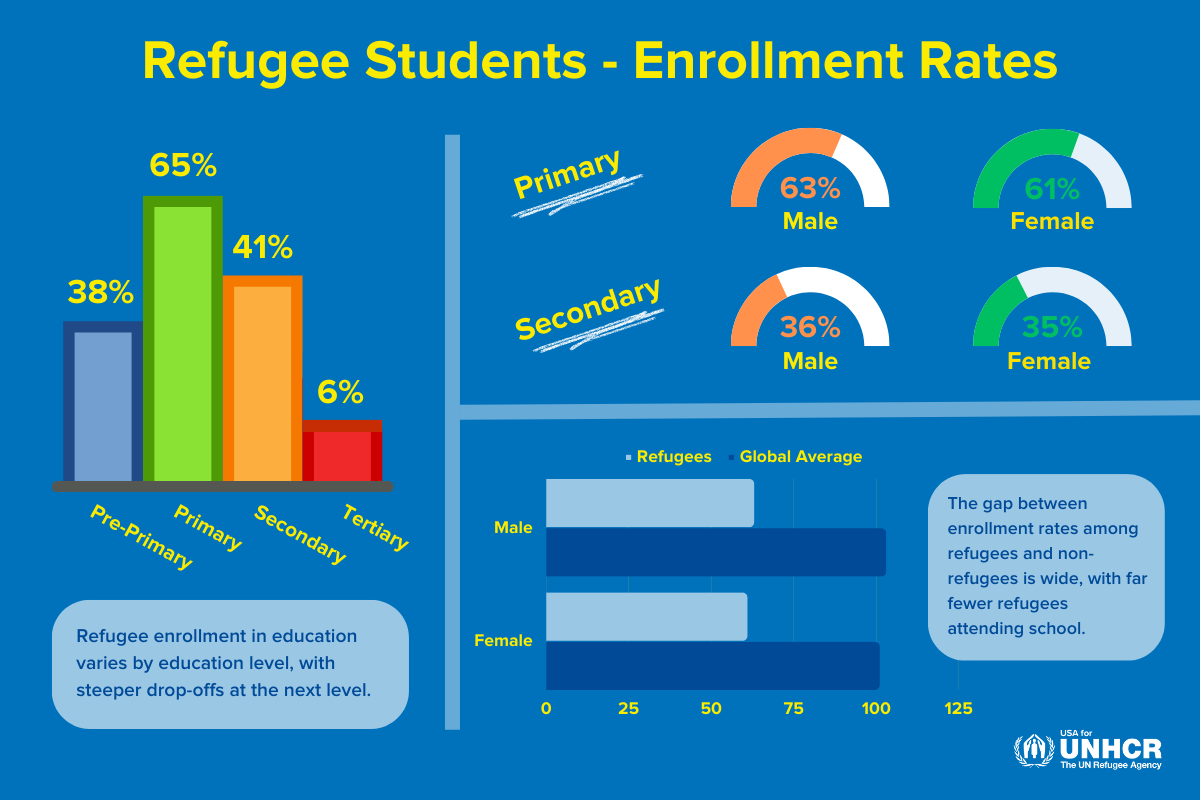
Last year, the refugee gross enrollment rate at secondary level stood at 41 percent. In comparison, the average enrollment rate for host country students was more than double that of refugee students. Secondary education is the bridge to higher education and new opportunities — vocational training, college and university, valuable qualifications, better professional training and job prospects.
Refugee students face numerous barriers pursuing higher education in their host countries. In many countries of asylum worldwide, refugees continue to struggle to access higher education on an equal footing with nationals due to a lack of inclusive educational policies, capacity constraints, prohibitive course fees and other administrative or bureaucratic impediments.
Increasing access to higher education for refugee students is a key priority for UNHCR and an integral part of UNHCR’s protection and solutions mandate.
4. Educating refugees is not only a fundamental right but beneficial for host communities as well
Evidence suggests that building and broadening the capacity of national education systems benefits local host communities and refugees alike. It not only strengthens existing education services for all children and youth but also promotes social cohesion and tolerance of people from different backgrounds.
When refugee students are integrated into national education systems and given the same access and rights as host-country learners, they’ve proven to be incredible students. According to UNHCR’s latest education report, 78 percent of refugee students who sit for primary exams in the reporting countries pass them.
For resettled refugees like Laura and Methusella, having a second chance to pursue their education in the United States changed the trajectory of their lives.
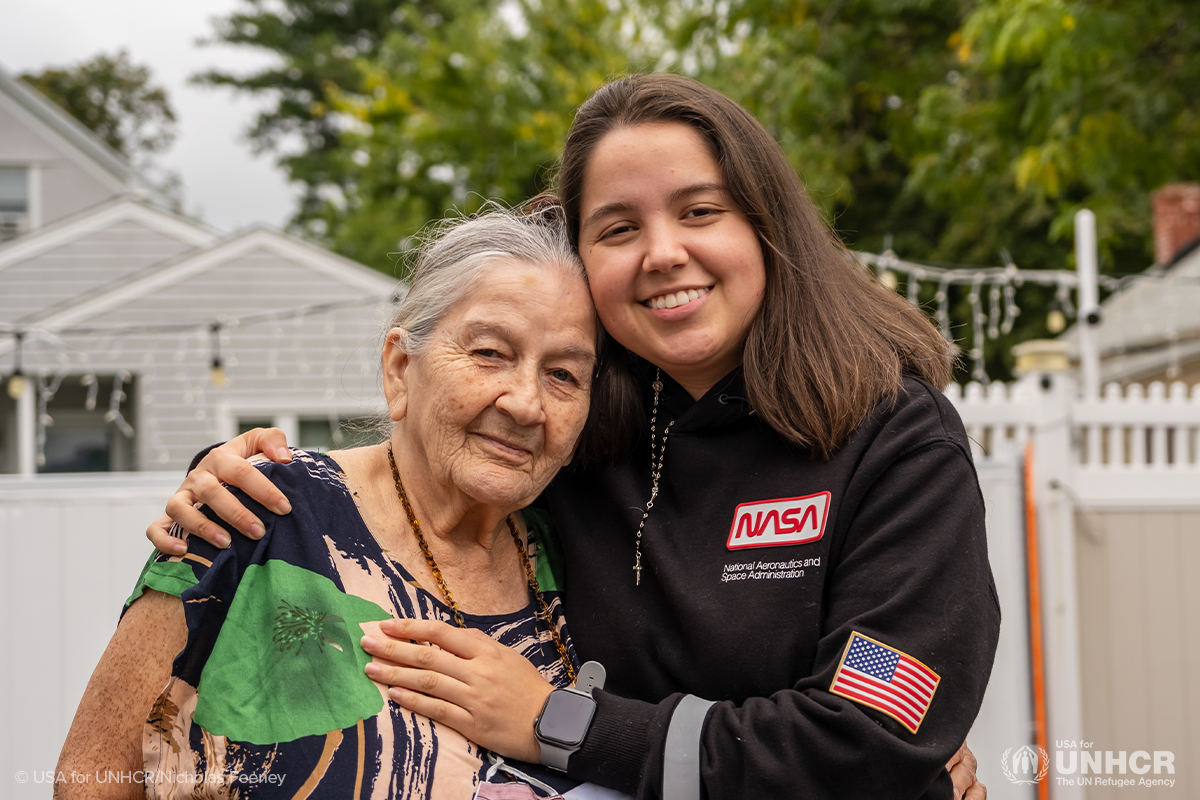
Laura Londono always dreamt of one day becoming an astronaut but had to shelve this dream when her family was forced to flee Colombia. It was only after resettling to the United States and getting the opportunity to study again that she realized she could continue to pursue her dreams. Now, she’s well on her way to achieving her dream of working for NASA as she recently completed a bachelor’s degree.
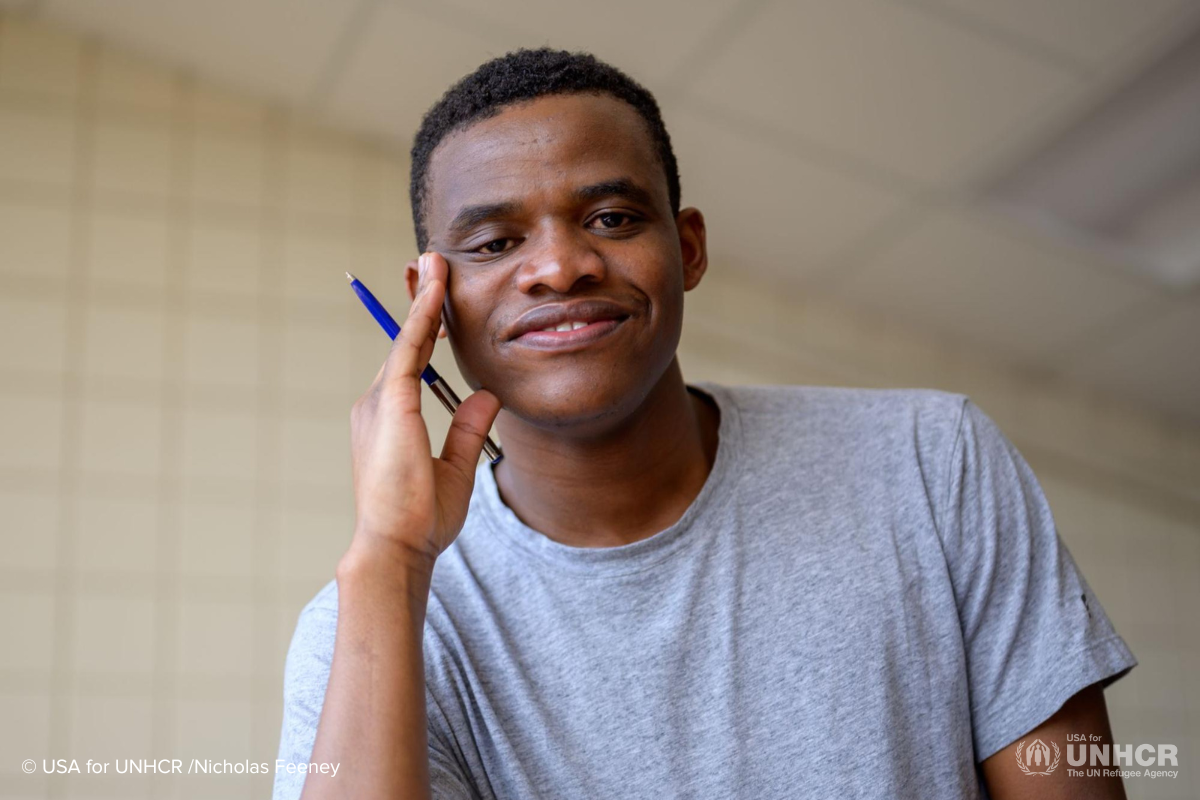
Methusella Rwabose faced similar challenges when his family was forced to flee the Democratic Republic of the Congo at a young age. For seven years he lived in a refugee camp, uncertain if he would ever receive an education. As soon as he was resettled to the United States and realized he could attend school, he wasted no time throwing himself into his schoolwork and becoming an active member of his community. Now, Methusella is giving back to his community in Denver, Colorado through the non-profit he co-founded that serves working-class immigrants, refugees, people of color, veterans, unhoused community members, at-risk students and other historically marginalized people.
By removing barriers to education based on factors such as nationality, legal status, and documentation and letting refugee students follow a curriculum in schools with qualified teachers — there is nothing they can’t achieve through education.
5. How UNHCR is supporting refugee education
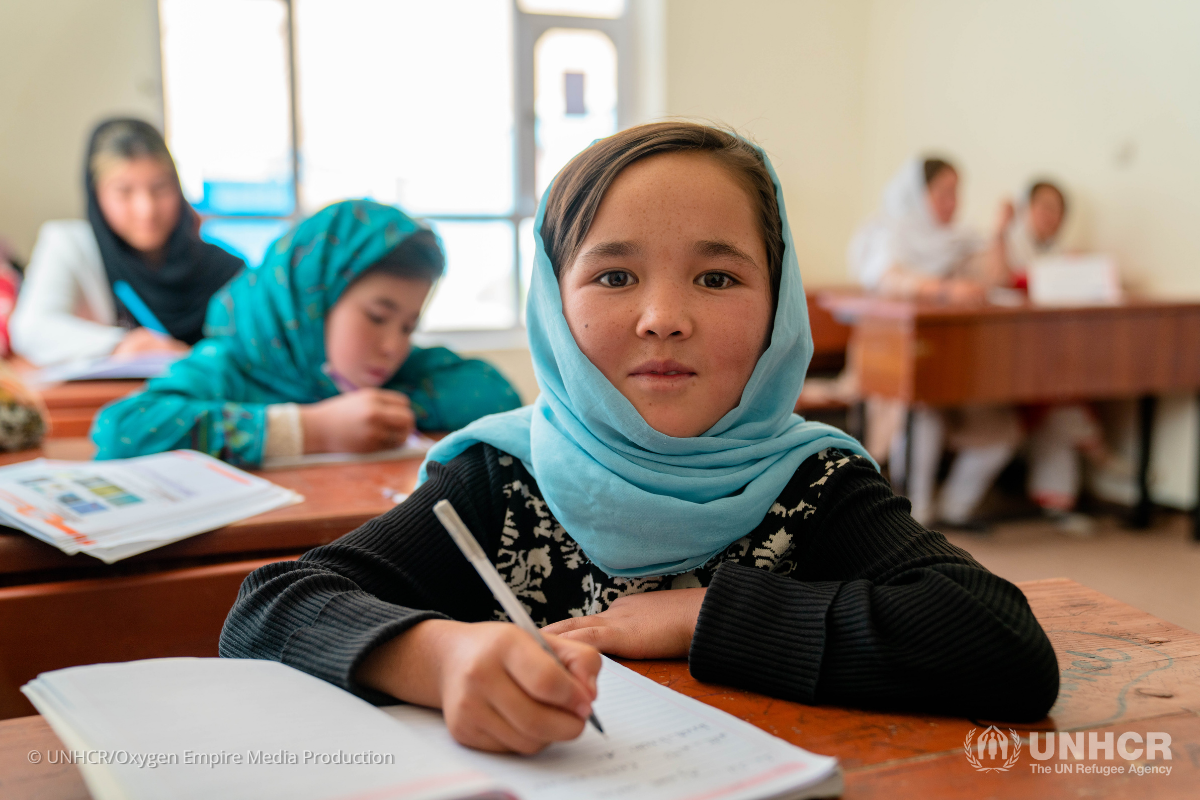
Refugee enrollment in school will not improve without a coordinated effort at all levels of society – governments, businesses, schools and universities, charities and members of the public. UNHCR is leading this effort and advocating for refugee students’ inclusion in national education systems at all levels of education.
UNHCR is committed to extending primary and secondary education opportunities to all children and youth. To address barriers to education, UNHCR works to improve access and retention of children in primary school through cash grants and vouchers, capacity building for teachers, expansion of safe learning spaces and strengthening partnerships with key education partners. The Educate A Child program is a multi-year program that aims to increase the quality of, and access to, primary education for out-of-school refugee children and improve retention rates.
UNHCR and partners are also aiming to achieve enrollment of 15 percent of young refugee women and men in higher education by 2030 – the 15by30 target. Based on current population data, achieving 15 percent enrollment in 2030 will mean that approximately half a million young refugee women and men will be participating in an enriching academic life. To achieve this goal, UNHCR supports a range of educational programs and scholarships including the DAFI (Albert Einstein German Academic Refugee Initiative) scholarship.
How to Help
More than half of all refugee children today are not enrolled in school. As the displaced population continues to rise each year, a significant and increasing proportion of the world’s children are missing out on an education. By becoming USA for UNHCR’s newest monthly donor, you can play a vital role in helping displaced refugees thrive and achieve their dreams through the pursuit of education.
